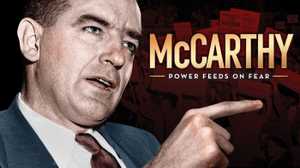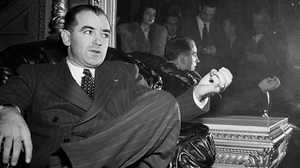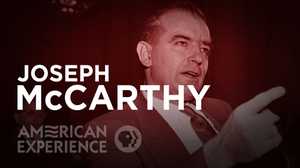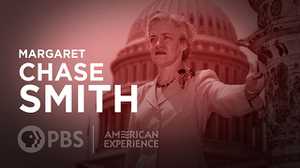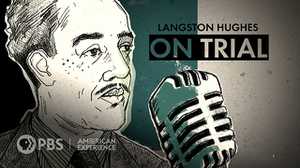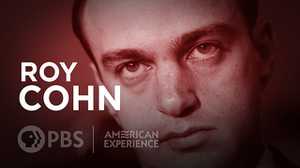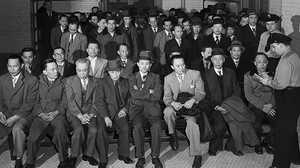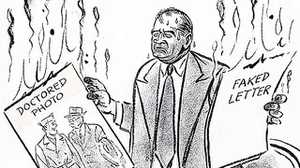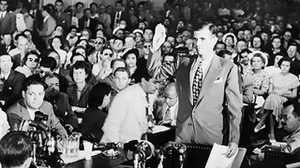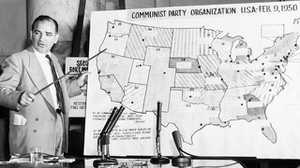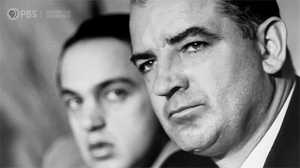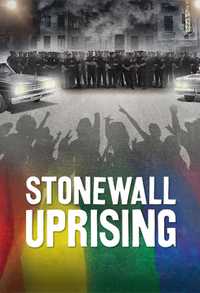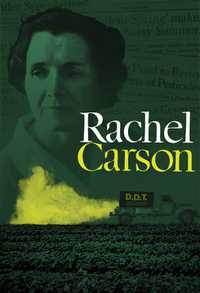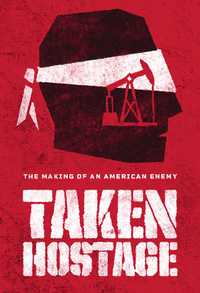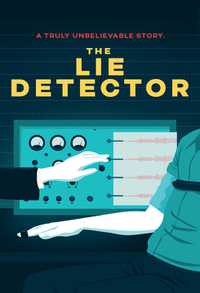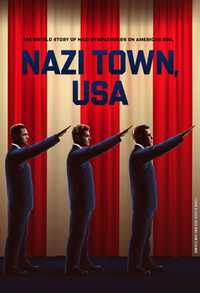Footage: camera equipment, crowds, participants arriving at hearings
Al Spivak, Wire Reporter: Everywhere you turned—in the evening and morning newspapers, on television news, on radio news Joe McCarthy was the main story of the day.
Sam Tanenhaus, Journalist: Joe McCarthy was one figure who came along and turned anti-communism into something bigger and more dangerous than anyone else ever imagined. He was the demagogue of American anti-communism. He wasn’t the inventor of it.
Joseph Senator Joseph McCarthy: One communist on the faculty of one university is one communist too many...
Donald Ritichie, Senate Historian: McCarthy is a person who, for what he thought were the right reasons, did all the wrong things…
Joseph Senator Joseph McCarthy: Even if there were only one communist in the State Department that would still be one communist too many.
Donald Ritchie, Senate Historian: And really inflicted a great deal of pain and anguish on individuals but on the society as a whole.
Senator Joseph McCarthy: You’ll answer the question.
Timothy Naftali, Presidential Historian: There are moments in American history when the country is afraid, when there is a threat that is hard to define, and it’s in those periods that demagogues arise. We don’t always show the best of ourselves when we’re afraid. McCarthy tested the system and the institutions that should have stopped him, didn’t for a while.
Senator Joseph McCarthy: Answer that, yes or no, do you know this man?
Jelani Cobb, Journalist: McCarthyism represented a cyclical phenomenon in American life. If we look at that dynamic, that has been connected to the junior senator from Wisconsin. It’s a dynamic that has a particular kind of resilience in American life and so there is a question as to whether the spirit that animated McCarthy and animated McCarthyism has ever really gone anywhere.
Act One
Scene One: Wheeling
Ellen Schrecker, Historian: Every Lincoln’s birthday, the Republican Party holds its special Lincoln Day dinners addressed by a major politician if they can get one.
David Oshinsky, Author, A Conspiracy So Immense: As Republicans are celebrating in 1950, their big guns are being sent to Chicago and New York and Los Angeles.
Sam Tanenhaus, Journalist: And you can get an idea of what Joe McCarthy’s status at that moment was that they sent him to the Women’s Republican Club in Wheeling, West Virginia.
Wheeling, West Virginia
Date February 9, 1950
David Oshinsky, Historian: And no offense to Wheeling, West Virginia, the person who gets sent there to talk is the person at the bottom of the totem pole.
Joe McCarthy’s Senate career from 1946 until 1950 is one of repeated failure. No one is expecting him to win reelection. So, what is most extraordinary here is that the most important speech in some ways of that generation is given in a place where there is a sense by the people who sent him there that nobody really cares what he has to say or is going to listen very hard.
Jelani Cobb, Journalist: The expectation was that McCarthy was going to give a standard boilerplate speech that you give to, you know, a Republican constituency. In Wheeling West Virginia, they really weren’t sending him there to make headlines. He comes out and says that there are 205 communists in the State Department. That’s electrifying. It’s so electrifying that people are almost distracted from the question of who these communists are, whether they actually exist, why does McCarthy know this and other people don’t.
David Oshinsky, Historian:: It’s, in a way, a kind of brilliant speech. We are the most powerful country in the world. We are the most influential country in the world. And yet we’re losing everywhere. We are losing in Asia. We are losing in Europe. We are losing technologically now to the Soviets. How do we explain this? And what McCarthy does in Wheeling is to explain it by waving a list, saying, “We are being sold out by traitors.”
Sam Tanenhaus, Journalist: Joe McCarthy is travelling through the United States on his Lincoln Day tour and reporters keep coming up to him, saying, “Joe, do you really have the numbers? Are there really that many communists?” And Joe would say, “Well, you know, let me go through my papers. I think we've got some names for you.” He realized he had a thing going. He’d found his shtick at last.
Donald Ritchie, Senate Historian: And he called back to his office and he asked his secretary, “Are we getting any publicity?” And she said, “We’re getting a lot of publicity.” His secretary described him as being almost intoxicated with the joy and excitement of getting this much attention for a story.
David Oshinsky, Historian: What is really interesting about Wheeling is that it takes a while for it to sink in. Once the attention starts to mount, the public really began to sort of link on to the fact that, “Oh, my God, this guy has done his research. This guy has names. This guy has numbers. He has really gone in and scrupulously looked for information. He’s doing research.” McCarthy had no list in his hand. He had nothing in his hand. It was a fraud.
Scene Two: The Poker Player
Senator Joseph Senator Joseph McCarthy: I often think of the days I spent back on the farm. As a small boy I had three brothers. My mother used to raise chickens to help pay the grocery bills and get her Christmas money. And one of the jobs I had with my three brothers was to go down into the swamps and dig out the skunks that used to come up and kill her baby chickens. You learn early in life that you don’t go skunk hunting with striped trousers, a silk handkerchief, and a top hat. You just can’t do it.
Ellen Schrecker, Historian: Joseph McCarthy was born on November 14th 1908 outside Appleton, Wisconsin. He came from a real working class farm family. He is this tough guy who pulled himself up completely on his own.
Dolly Plesser, Cousin: His farm was about a mile and a half from my father’s farm. What was raised on the farm was mostly milk cows. He had a very good mind and when he got set on something, he went through it and he worked hard at what he was doing.
Dolly Plesser, Cousin: He graduated from high school in one year. And after that, I guess there was no stopping him. His family, I think, were very proud of him and the other boys were kind of left in the shadows after Joe started out like that.
Dolly Plesser, Cousin: When he was going to Marquette, Dad took him up to the barn, and taught him how to box because he was an Irish boy and he should know how to handle himself, as my father would have said. When he did go to Marquette, he was good enough that he was given a little extra money to be the boxing coach.
David Oshinsky, Historian: Joe McCarthy did not have the money for tuition. So he had to take all kinds of odd jobs. And among the things he did as well was that he played what I would call professional poker. And this high stakes poker actually was successful enough to kind of help keep him at Marquette, allow him to move on to law school.
Ellen Schrecker, Historian: After Marquette University, he goes into private practice. It’s the Great Depression and partly for that reason he doesn’t have many clients. He’s been out of law school, maybe three or four years, very little experience, and then wants to go become a judge.
David Oshinsky, Historian: Young Joe McCarthy was actually a Democrat. He was going to run against a Republican incumbent, someone who had been in power, in office much longer—Judge Werner. This is a man who had been in this office for a very, very long time and was seen as a kind of institution. McCarthy viewed him as vulnerable.
David Oshinsky, Author, A Conspiracy So Immense: Here was a guy who got into his automobile and went from farm to farm to farm, introducing himself. Joe McCarthy basically personally talked to every constituent in that district. And that kind of, what we might call retail politics, is very, very important. Werner was beyond this. In the end, McCarthy does pull off the upset.
David Oshinsky, Historian: There are two versions of McCarthy as a judge. One is that he was a corner-cutter, that he gave out divorces too easily. The other is that he was a judge who basically cleared the docket in ways that Werner never had. One guy described it as Joe just sort of opened the windows and let in fresh air. He was all piss and vinegar. What Joe McCarthy offered was a kind of new, invigorating sense that people are going to come in here and they’re going to get their justice quickly.
Scene Three: Senator McCarthy
President Franklin Roosevelt First Inaugural Address
President Franklin Delano Roosevelt: This nation is asking for action and action now. A host of unemployed citizens face the grim problem of existence, and an equally great number toil with little return. Our greatest primary task is to put people to work.
Beverly Gage, Historian: The Great Depression was an existential crisis for a lot of Americans. It seemed to indicate, in fact, that capitalism was done for and something else was going to have to rise from its ashes.
Jelani Cobb, Journalist: With the staggering economic despair that people find themselves in and an unemployment rate that is 25% nationally— with African-Americans that unemployment rate is closer to 50%—the Marxist critique of the capitalist economy seems to make more sense in the 1930s than it did a decade earlier.
Singer of Communist Anthem: Arise, you prisoners of starvation!
Arise, you wretched of the earth!
For justice thunders…
Beverly Gage, Historian: For many Americans, it seemed that communism had a solution to the economic crisis.
Beverly Gage, Historian: Some people are drawn to the Communist Party because they like the ideological battle. Other people are drawn to it because they see communists working very hard as labor organizers. Other people are draw to it around civil rights. And so, you actually have a very, very broad spectrum of people, who are coming at it from a kind of interest in reforming American society.
Leon Kamin: I was quite young and I was influenced by a group of very young eager, leftwing students and I spent a lot of time with them. As it turned out, I didn’t recognize it at the time, but most of them were members of the Communist Party.
Leon Kamin: The answer sounds goody-goody. You know, you wanted a better society, a more just society. I remember in college, YCL was the Young Communist League. And their recruiting motto, which was a good one, was, “For a life with a purpose, join YCL.”
Beverly Gage, Historian: As an institution, the Communist Party is taking a lot of money from the Soviet Union throughout the ’20s and ’30s, and in fact many communists really deeply believed that their primary commitment is actually to the Soviet government and to Stalin himself.
Communist speechmaker: … and to defend the Soviet Union.
Leon Kamin: There was a line and you subscribed to the line. If you didn’t, you were welcome to withdraw, but criticism was not invited or listened to. You accepted the line or you quit.
Timothy Naftali, Presidential Historian: Fear of Soviet penetration of the United States government in the late 1930s and World War II is based on fact. It existed. The Soviets had informants in the White House, in the Treasury Department, in the State Department, in the Office of Strategic Services.
Sam Tanenhaus, Journalist: No one knows exactly how many members there were. The best estimate was something like 75, people in the government, who were active agents. And you ask yourself, “Is that a few or is it a lot?” And the answer is, “It depends who they are and what they’re doing.”
Pearl Harbor, Hawaii
Roosevelt: Yesterday, December 7, 1941, a date which will live in infamy. The United States of America was suddenly and deliberately attacked by naval and air forces of the Empire of Japan.
David Oshinsky, Historian: After Pearl Harbor, McCarthy joined the marines. He didn’t have to do so. Judges were exempt. Why would Joe McCarthy do this? And the reason is quite simple. McCarthy saw military service as a way to the political future. As his best friend, Urban Van Susteren told him: “Look, Joe, if you have got to be a hero to be a politician join the marines.” McCarthy’s job was to debrief pilots who came back from bombing runs over Japanese held territory. By all accounts, he did his job very well.
Senator Joseph McCarthy: I was what they referred to as a marine combat intelligence officer. That meant you did about everything, including procuring food for the Navy.
David Oshinsky, Author, A Conspiracy So Immense: What McCarthy did was turn himself into a tail-gunner. He would ask fighter pilots and bomber pilots to take him up into the back of the aircraft where the machine gun was and Joe would fire bullets endlessly. And he actually did set a record of firing, I think, the most machine gun bullets in one day in the history of the Pacific Theater. The problem was that none of them was fired in battle.
Senator Joseph McCarthy: Yes I got a very interesting mahogany plaque when I left, which was inscribed to, “Father Mac who destroyed more coconut tress and less Japs than any man in the Pacific.”
Radio Guest: That’s wonderful.
Radio Host: How about this “Father Mac?” Uh was that the nickname the boys tagged you with?
Senator Joseph McCarthy: Well I was sort of the old man of the squadron. I was 33 years old and most of the boys were 21, 22.
Ellen Schrecker, Historian: He claims to have been wounded in the war. What happened to him was he fell off a ladder during a celebration that commemorates the crossing of the equator. Once he gets into political life, he talks about his leg being full of shrapnel. He walks with a limp sometimes. This is all completely made up.
Narrator: The greatest news story of all time—the final unconditional surrender with the whole world waiting to celebrate. Thus did VJ day go into history.
David Oshinsky, Historian: Joe McCarthy becomes a Republican when he comes back after World War II. The New Deal is really beginning to fade. And it’s clear that the Republican Party seems to be not only the party of the future, but the party of the veterans.
Beverly Gage, Historian: 1946 is one of these pivotal midterm elections. The Democrats have really dominated American politics for most of the 1930s and the 1940s. The Republicans are saying, “The Democrats are going to be soft on communism. They’re going to be soft on the Soviet Union. We’re the people that you can trust actually to make this fight in the world.”
David Oshinsky, Historian: Mccarthy sets his sights on a Senate seat held by a very popular Republican, a progressive Republican, Robert La Follette, Jr., the son of the great Robert La Follette, who ran for president in the 1920s. If you’re going to run for political office, the one person you don’t want to run against is Bob La Follette. But McCarthy realizes that, “I am a young Marine with a war record, running against someone who has been spending too many days in Washington.”
Cody Splitt, Mccarthy Campaign Volunteer: Well, for one thing about La Follette, he wasn’t making a big hard fight for it. He stayed in Washington. He only came out there about one time that any of us could ever remember.
Cody Splitt, Mccarthy Campaign Volunteer: Joe never stopped campaigning and he drove everywhere and picked up people that were active in the politics and took them with him to the next place.
Senator Joseph McCarthy: The twelve odd million men who were removed from civilian life during the war are returning to find that what was a democracy has degenerated into a stifling, smothering bureaucracy. Since VJ Day, there have been added to this bureaucratic octopus a total of over 300,000 workers. There is only one way of destroying this government by bureaucracy. And that is to clean out that administration from the very top to the very bottom so that you can plunge a knife into the heart of this tentacle monster.
Dolly Plesser, Cousin: He would get the high school girls, which I was one of, and we would just take the telephone book and rip a page out. And then, we wrote a card just telling them Joe would appreciate his vote. Ever so many people said that that was why they voted for him was the thoughtfulness that he came to see ’em or to write the note to him.
Cody Splitt, Mccarthy Campaign Volunteer: Everybody was asking all over America how Joe McCarthy could have beaten the great Robert La Follette, Jr. It was a very brave, and crazy, courageous thing to do and Joe did it.
David Oshinsky, Historian: What McCarthy’s victory sort of shows is that everyone is fair game. I mean, if you can knock off a La Follette, you really have a kind of winning formula.
David Oshinsky, Historian: The election itself, when McCarthy runs against a Democrat in a largely Republican state, that’s a foregone conclusion. He’s going to win.
Narrator: The whole nation is voting and the Truman administration and the Democratic Party lose this battle of ballots. The victorious Republicans win control of both branches of Congress—Senate and House.
President Harry S. Truman: I shall cooperate in every proper manner with members of the Congress. And my hope and prayer is that this spirit of cooperation will be reciprocated.
Scene Four: Anti-Communism in America
Donald Ritchie, Senate Historian: Joe McCarthy arrived in town and held a press conference on his first day there. He had nothing to announce, but he just wanted the reporters to pay attention to him.
David Oshinsky, Historian: Joe McCarthy basically is there to make a name for himself. What is really striking about him is his willingness not only to take on senior Republicans and Democrats, but to go against all of the senatorial courtesies that have made the body what it is. He is not there to play by their rules.
Beverly Gage, Historian: He makes a lot of the fact that he is a kind of rough and tumble farm boy from the Midwest, that he comes from very humble beginnings.
Senator Joseph Mccarthy: Thank you, fellow Americans. I certainly am more than happy to be out here at night, away from Washington for at least one day and back in the United States.
Beverly Gage, Historian: During McCarthy’s early years in politics, the cold war has really settled in. The Soviet Union, its moves into Eastern Europe. It really looks as if potentially a worse form of totalitarianism is taking over the world.
Sam Tanenhaus, Journalist: One nation after another seems to fall under communist influence in Eastern and Central Europe.
Timothy Naftali, Presidential Historian: The Soviet Forces clamped down on freedom of speech and freedom of religion in Eastern Europe. You didn’t need an intelligence service to know this. You could read about it in the newspapers.
David Oshinsky, Historian: How did we allow this to happen? How have we allowed the Soviet Union to become so expansive and so powerful? There was a sense that the Democratic Party had not done enough to combat the Soviet Union. It had not stood up to Soviet expansion.
Sam Tanenhaus, Journalist: As far back as the 1930s, some in Congress had already been accusing the Roosevelt administration and the New Deal of being filled with communists. That’s when the House committee on Un-American Activities was formed.
Narration: The growing menace of Communism arouses the House of Representatives un-American Activities Committee. Among the well-informed witnesses testifying is J. Edgar Hoover, head of the Federal Bureau of Investigation. Mr. Hoover speaks with authority on the subject.
Hoover: The Communist Party of the United States is a fifth column, if there ever was one. Their goal is the overthrow of our government.
Thomas Doherty, Media Historian: In 1947, the House Un-American Activities Committee—HUAC—goes after Hollywood because the congressional Committee has realized quite quickly that attacking high-profile people is really a great way to get publicity.
J. Parnell Thomas, Huac Chairman: Are you a member of the Communist Party? Or have you ever been a member of the Communist Party?
John Howard Lawson, Hollywood Screenwriter: It’s unfortunate and tragic that I have to teach this committee the basic principles…
HUAC Committee: That’s not the question, that’s not the question. The question is have you ever been a member of the Communist Party?
Thomas Doherty, Media Historian: The 1947 hearings are a success for the House Un-American Activities Committee because they get what they want, which is, they get Hollywood to blacklist communist writers.
David Oshinsky, Historian: It was the worst imaginable kind of hearing. There is no defense for what HUAC did. The screenwriters had First Amendment freedoms that were simply stomped upon and they paid a very, very high price for their political beliefs. We’re America. People have a right to their opinions.
Beverly Gage, Historian: By 1948 and 1949, you’re beginning to see a series of congressional hearings around espionage charges. The most famous of these is the Alger Hiss case. Alger Hiss was one of the kind of shining boys of the New Deal. He had been Ivy-League-educated. He was this very elegant, well-spoken, thoughtful man who had risen through the State Department, who was a deep insider, and then, in 1948, comes the accusation that he is actually a secret communist and a Soviet spy.
Narrator: “Who’s the Liar?” might well be the title of the drama, which unfolds before a packed caucus room where the House Un-American Affairs Committee members swear in Alger Hiss, former State Department executive. Mr. Hiss is accused of being a former communist and before news cameras faces his accuser.
Alger Hiss: I welcome the opportunity to answer to the best of my ability any inquiries the members of this committee may wish to ask me. I am not and never have been a member of the Communist Party.
David Oshinsky, Historian: Hiss’s real crime was espionage, but he was found guilty of perjury, because the statute of limitations on espionage had expired. A major State Department figure has just been sent to jail. There’s a sense of enormous vulnerability.
Donald Ritchie, Senate Historian: Harry Truman signed an executive order setting up loyalty boards in the government as a way of trying to make sure that there were no spies.
Timothy Naftali, Presidential Historian: How did the loyalty board work? They said to the FBI, “Do you have anything about these people, these civil servants in your files?” If the FBI had what was called derogatory information, then the FBI would then do a real investigation of that person. Now, what’s derogatory information? It could be being friends with someone who is a communist or friends with someone who is thought to be a member of a front organization of the Communist Party of the United States.
Jelani Cobb, Journalist: When you see the Truman administration enact the loyalty oath program, it’s as a defensive measure. Are people really concerned that the people working for the post office are secretly going to meetings of the Communist Party at night? Not really. But politically speaking, it’s something that Truman envisions as a kind of bulwark against the allegation that he has been soft on communism.
Act Two
Scene One: Early Senate Career/Wheeling revisited
Beverly Gage, Historian: During his early years in politics and there’s nothing really to suggest that McCarthy is deeply committed to any particular set of political ideas in the way that we would think he would become.
David Oshinsky, Historian: VO: Until about 1950, McCarthy said next to nothing about communism. The heavy lifting in these years was done by the House Un-American Activities Committee and you have to understand that was a House committee and McCarthy was a United States senator.
David Oshinsky, Historian: VO Away from the Senate, Joe lived the bachelor life. He likes to gamble, he likes to party. He was always a heavy drinker. He likes to live as well as he can and he is willing to take loans from lobbyists who want certain things.
David Oshinsky, Historian: The soft drink companies needed to end rationing to get enough sugar to produce the product they wanted to produce.
Narrator: Demand for sugar is now actually larger than it was during the war. But the world’s supply is still far behind the demand.
David Oshinsky, Historian: Pepsi is looking for a senator who will lie quite boldly in saying that there is no shortage of sugar in the United States.
David Oshinsky, Historian: Joe McCarthy stood out as someone who was willing to do their dirty work. And McCarthy simply lied. And his fellow senators nailed him on this. And what happens very early on is that he tends to offend senior members of both parties and he’s punished. He’s given the worst imaginable committee assignments.
Donald Ritchie, Senate Historian: He was really worried about his chances of running for re-election in 1952. He wanted to find something that would really draw attention.
Sam Tanenhaus, Journalist: What McCarthy did was to take the substance of a quite lengthy speech Congressman Richard Nixon, the prosecutor of Alger Hiss, had given on the floor of Congress and boil it down into an accusation against the Truman administration. That essentially what he said was, “All right, we've got one Alger Hiss, imagine how many others must be there.”
February 9, 1950
Donald Ritchie, Senate Historian: And McCarthy went off to Wheeling and gave the speech. And a local Associated Press reporter covered it.
Timothy Naftali, Presidential Historian: Imagine yourself as a newspaper-reading American in early 1950. What’s just been happening around the world and at home?
Soviet Union, August 29, 1949
Timothy Naftali, Presidential Historian: The Soviets have detonated their first atomic bomb. The United States has lost its nuclear monopoly.
October 1, 1949
Timothy Naftali, Presidential Historian: The Chinese Revolution ended and the most populous country in the world is now under a communist dictator, Mao Zedong.
January 21, 1950
Timothy Naftali, Presidential Historian: At home, Alger Hiss, the epitome of the American establishment has just been convicted for perjury. It looks like people that look and sound like the famous sort of northeastern establishment are Soviet agents. Where’s the world going? I mean if Alger Hiss is a Soviet agent, well, Harry Truman could be a Soviet agent.
Ellen Schrecker, Historian: The Democrats have the feeling that McCarthy probably doesn’t know what he’s talking about and so they want to show that he’s been full of hot air. They appoint a investigating committee under Maryland Senator Millard Tydings, who’s quite conservative, and Tydings runs a investigation of McCarthy’s charges.
Voice of Millard Tydings, Senator Millard Tydings: Now the question that I asked was simply this: Have you in your possession any memorandum, any affidavit, any paper, any photostat or other material which would tell us who this individual is? Not where you got it. Not how you got it. Not who gave it to you. But have you the material?
Senator Joseph McCarthy: May I answer the first half of your question first…
Donald Ritchie, Senate Historian: McCarthy had a lot of opponents in the press, but he had just as many friends. They were reporters for the big conservative newspaper chains, the Hearst chains, the Scripps-Howard chains, for instance.
McCarthy called the head of the Hearst newspapers, and said that he’d shot his mouth off and that he needed help. And Hearst sent a series of reporters to help him.
David Lattimore, Son: McCarthy did bring in finally nine names.
Senator Joseph McCarthy: I think it’s important that the committee know that the communist activities of Miss Kenyon are not only deep-rooted but extend back through the years.
Judge Dorothy Kenyon, Dorothy Kenyon: I just heard the shocking news that Senator McCarthy had the audacity to call me a communist today on the floor of congress. I want to say here and now that Senator McCarthy is a liar.
David Lattimore, Son: At some point McCarthy must have gotten the sense that he needed something more dramatic. His brainstorm is that he would come up with the boss of Alger Hiss. And that was going to be my father.
Scene Two: Top Soviet Spy
Senator Joseph McCarthy: We have this man Owen Lattimore, a man commonly referred to as the architect of our Far Eastern policy, a policy which has sold into communistic slavery, four hundred million people, a policy which has resulted in a batting average of one thousand percent for the Russians and a batting average of zero for the United States.
Donald Ritchie, Senate Historian: Owen Lattimore is a professor from Johns Hopkins University. He’s a Chinese specialist. He’s left-leaning. Like a lot of others who studied China, he thought that the Chiang Kai-shek regime was hopelessly corrupt and he wanted the United States essentially to support the communist takeover and recognize China.
David Lattimore, Son: My father was in Afghanistan and he heard about the McCarthy accusations. He told the Associated Press that the charges were pure moonshine.
David Oshinsky, Author, A Conspiracy So Immense: Is Lattimore arrogant? Yes. Is Lattimore a traitor? Absurd. Is McCarthy gaining traction from all this? Unbelievably.
Narrator: And in his Capitol office meanwhile Senator McCarthy is snowed under by mail concerning his sensational charges, mail both pro and con. With Lattimore due back from Afghanistan at week’s end to publicly answer McCarthy, the senator faces a showdown and perhaps a libel suit.
David Lattimore, Son: My mother and I went to what was then Idlewild Airport, now JFK. It was a strange underground almost sort of Dante-esque setting with a long corridor that he was going to have to come down, running the gauntlet of who knows a hundred reporters and photographers with their big four-by-five-inch cameras and flashbulbs.
April 6, 1950
David Lattimore, Son: The Tydings Committee was in the Senate Caucus Room. Joe McCarthy was there. My mother and father were quite close.
David Lattimore, Son: The senator has stated that he will stand or fall on my case. I hope that this will turn out to be true because I shall show that his charges against me are so empty and baseless that the senator will fall and fall flat on his face.
David Lattimore, Son: When it was over that day, my grandfather said that the statement was like Cicero’s oration against Catiline in its sort of taunting, mocking approach that Cicero was the master of. McCarthy didn’t say anything. And my father said, “He would never meet my eye, he never looked me in the eye.”
Thomas Doherty, Media Historian: When Herblock does his famous cartoon, the phrase catches on and it becomes common parlance immediately. Herblock draws a picture of a stack of tar pots, and at the top of it, he puts the word, “McCarthyism.” This anxiety has been swirling in the air about communism, but it isn’t until that moment that Herblock names it that we kind of have this signifier for it.
Senator Joseph McCarthy: I want to assure the tens of thousands of people who have written me, urging that we keep up this fight to a successful conclusion, that the fight will continue regardless of how rough the opposition gets and rough it will be. You be sure of that.
David Oshinsky, Historian: Republicans realize there’s just too much political capital at stake for them to desert McCarthy. Public opinion polls show this gigantic upsurge in support of McCarthy’s charges. So the Republicans are saying to themselves, we have a complete loose cannon with virtually no information at the head of our army at this moment. We’re riding along with him because we basically have no alternative.
Donald Ritchie, Senate Historian: There was also only one woman senator and that was the one senator who stood up and spoke against McCarthy, and she was a Republican, and that was Margaret Chase Smith from Maine. Smith was appalled. She thought that it was against all that she stood for in politics to try to perpetuate yourself by using smears and unfounded allegations.
David Oshinsky, Historian: What Margaret Chase Smith decided to do was to write up what was called a Declaration of Conscience. About a half a dozen other moderate Republicans signed on initially, but they began to jump ship. And Margaret Chase Smith was basically standing almost alone in the Senate with her Declaration of Conscience.
June 25, 1950
Ellen Schrecker, Historian: At the same time as the Tydings Committee is winding up its work, the North Korean Army crosses the 38th Parallel and invades South Korea. The advent of the Korean War seems to give enormous credibility to these charges, “Hey, look what happened. We lost China and now, here come the communists taking over another piece of the free world.” I really feel very strongly that had there not been a Korean War, McCarthy would have fizzled out
Ellen Schrecker, Historian: And then, in July a engineer in Manhattan named Julius Rosenberg is arrested for having passed secrets to the Russians about the atomic bomb. Rosenberg was in fact an atomic spy. We now know that. And his arrest reinforces the message that Joe McCarthy is trying to get out there. This really is what gives him power.
Donald Ritchie, Senate Historian: The Tydings report at the end basically accused McCarthy of perpetrating a fraud and a hoax. Unfortunately the report was voted on by almost a party-line vote, with the Democrats voting for it and the Republicans voting against it, and that diminished the impact of it.
The Tydings investigation was designed to show that McCarthy’s charges were untrue, but by so focusing on McCarthy, they in a sense made him a hero of the anti-communist movement and they elevated him.
Ellen Schrecker, Historian: Owen Lattimore’s career is completely destroyed. He’s eased out of any kind of professional advancement. He’s no longer being consulted.
David Lattimore, Son: My father was living 50%, approximately, on book royalties and fees for articles and lectures. All that dried up with these McCarthy charges. They had lean years.
NBC Meet The Press, Martha Rountree, Journalist: A lot of people say, Senator, that they hope you win out and they’re on your side, but they’re against your tactics. If you had to do this all over again, would you have changed any of your tactics?
Senator Joseph McCarthy: Miss Rountree, by tactics, I assume you mean telling the public what’s going on in our State Department. I assume you mean that. I’m not equipped to use lace handkerchief type of tactics. We may have to use lumberjack tactics, bare-knuckle tactics. If those are the only kind of tactics the communists understand, then those are the tactics we'll use.
David Oshinsky, Historian: In the 1950 election campaign, McCarthy really went after Tydings as basically a tool of the American Communist Party, which was outrageous. Tydings was a conservative Democrat. McCarthy and his henchmen fused together a photograph of Millard Tydings and Earl Browder, the head of the communist party. They had actually talked at a hearing, but it was as if they were best friends in a warm embrace.
Narrator: From Maryland comes the upset of the day. Republican John Marshall Butler, a lawyer running for his first office, defeats Millard Tydings, who rejected Senator McCarthy’s charges of communism in government.
David Oshinsky, Historian: The media made it seem as if Tydings lost because of McCarthy’s intervention and what this meant was if you want to hold on to your seat, stay away from Joe McCarthy.
Senator Joseph McCarthy: There are definitely two groups of Democrats as of today. Number one, there are the millions of loyal Americans who have voted the Democrat ticket. Individuals who are just as loyal as the average Republican.
Senator Joseph McCarthy: On the other hand there is that small, closely-knit group of administration Democrats who are under the complete domination of the bureaucratic, communistic Frankenstein, which they themselves have created. They shouldn’t be called Democrats. They should be referred to properly as the “Commiecrat” Party. [Applause]
Scene Three: Republicans Win the Election
Alvin Spivak, Wire Reporter: Joe McCarthy was a very charming person. He was very affable, easy to reach, easy to contact, talkative. He was Joe and he called you by your first name and he got to know your name.
Donald Ritchie, Senate Historian: He just wanted people to like him and in fact, even people that he attacked on the Senate floor, when he walked out the door, he could put his arm around them and was like, “Well, that was just politics you know now we can become friends along the way.” I think a lot of this comes from McCarthy’s experience as a boxer. In the ring, anything went. But then when you got out of the ring, you weren’t enemies anymore. You put your arm around your opponent and you walked away.
March 29, 1952
Narrator: At the Jefferson Jackson day dinner in Washington, President Truman holds a bombshell in abeyance.
Truman: I have served my country long and I think efficiently and honestly. I shall not accept a re-nomination. I do not feel that it is my duty to spend another four years in the White House. [cries of “No!”]
Ellen Schrecker, Historian: The Democratic candidate was the governor of Illinois. His name was Adlai Stevenson. He was a moderate. He has a nice clean record.
David Oshinsky, Author, A Conspiracy So Immense: Everybody assumed that there would be a conservative who would be running for president on the Republican ticket and that would be Senator Robert Taft of Ohio. The moderates, those who are afraid of Joe McCarthy, start this Draft Eisenhower movement. General Dwight Eisenhower is a war hero, head of NATO for a while, just a very likeable personality.
Ike Campaign Commercial
Commercial: Ike for president, Ike for president, Ike for president, Ike for president. You like Ike. I like Ike. Everybody likes Ike. For president. Hang out the banner. Beat the drum. We’ll take Ike to Washington.
David Oshinsky, Historian: Although the Republicans were running a moderate, they were perfectly willing to use McCarthy as an attack dog against the Democrats and the Democratic presidential candidate. Adlai Stevenson had a very peripheral relationship with Alger Hiss. And during the campaign, McCarthy made what we call “the purposeful slip.”
Senator Joseph McCarthy: I perform this unpleasant task because the American people are entitled to have the coldly documented history of this man who says, "I want to be your president." Strangely, Alger—I mean, Adlai.
David Oshinsky, Historian: What you had was a Republican senator basically saying that there was no difference between a man who had been sent to prison for espionage and the man who was now the standard bearer of the Democratic ticket in 1952.
Narrator: America speaks at the polling booth. It's Eisenhower by a landslide. After twenty years, the Republican Party is back in power. General Dwight D. Eisenhower is elected.
Act Three
Scene One: Permanent Subcommittee on Investigations
Donald Ritchie, Senate Historian: The authors of the Constitution felt that they would give the Congress the ability to keep an eye on the executive branch, to police it, to regulate it. There’s a long history of congressional investigations of the executive branch up to this point and much of it had been very positive.
Donald Ritchie, Senate Historian: McCarthy, by seniority, in 1953, was entitled to be chairman of the Government Affairs Committee. Joe McCarthy assigned himself to be the chairman of the Permanent Subcommittee on Investigation.
Donald I. Rogers, Editor, New York Herald Tribune: You going to use the same tactics that you have used right along, sir?
Senator Joseph Mccarthy: Oh now, and you say “the same tactics.” You see if you have a committee, the power to subpoena, investigators, you don't use the same tactics you use when you have no committee, no power to subpoena. Where you have a committee, so if you have power of subpoena you can get the records, and if we have a Republican president, we’ll be able to get those records, I’m sure.
Jelani Cobb, Journalist: McCarthy actually has political power now. He can create these public spectacles by investigating individuals or organizations, institutions, and so on, but it’s also dangerous because now Republicans are in the majority. After the first six months or so, you start pointing to the ineptitude, or the incompetence, or dereliction of Republicans, not Harry Truman, not Democrats.
Donald Ritchie, Senate Historian: McCarthy wanted an aggressive counsel. There was already a counsel on the committee, but McCarthy didn’t think he was quite aggressive enough.
Thomas Doherty, Media Historian: Roy Cohn is a whip-smart lawyer from New York. He’s young. He’s ambitious. He is the son of a legal family in New York, very wealthy, influential family. He uses that family connection to get in the federal prosecutor’s office. His prosecution of Julius and Ethel Rosenberg is instrumental in getting them the death penalty, the first time in American history in peacetime that two people have been executed for espionage.
Donald Ritchie, Senate Historian: When Roy Cohn became the counsel, one of the people he appointed was David Schine. Schine is an unpaid consultant. His parents own a chain of hotels. His experience in terms of anti-communism was he wrote a little pamphlet that was put into each of the hotel rooms that his parents had. He was a lightweight on these issues but Cohn liked him and Cohn wanted him around.
David Oshinsky, Historian: President Eisenhower realizes that the anti-communist issue is not going to go away. So Eisenhower believes that he really has to tighten up the loyalty program.
David Oshinsky, Historian: What the Eisenhower administration also does is to begin to look at security risks not just in terms of their politics, but in terms of their alleged sexual proclivities. There is a very, very strong belief in the early 1950s that homosexuals, given the stigma of homosexuality in the 1950s, not only should not be working in government, but were security risks because they could be so easily blackmailed.
David Oshinsky, Historian: Eisenhower originally assumed that once he took over, that McCarthy would calm down. That he would say, “OK, we have a Republican in power.” But in fact it didn’t happen at all.
David Oshinsky, Historian: What McCarthy does is to say publicly— and this is against the law—that he is asking people in government who think there is subversion to go and take files and secretly send them to McCarthy. What he is really doing is asking people in various departments to rifle through files, to settle grievances against workers they do not like. He is no longer throwing rocks and breaking White House windows, he is now basically inside the government with the power to investigate and he is going to use that to what he thinks is his advantage.
Scene Two: The Hearings
Narrator: In Washington, from its new headquarters near the Capitol, the Voice of America beams largest speech around the world. In 38 languages the truth, a powerful ally of freedom, is being recorded on tape for broadcasts that will pierce
Donald Ritchie, Senate Historian: The Voice of America was started during the Second World War. Basically, the people who worked there fled from their countries during the war and they were either anti-fascists or anti-communists essentially. And the anti-communist faction created collected information about their colleagues who they thought were too sympathetic to the communists. The anti-communist people began leaking information to McCarthy.
Senator Joseph McCarthy: This morning we've been holding executive sessions covering the information programs dealing almost entirely today with the Voice of America, dealing with incompetence, waste, subversion.
March 3, 1953
Senator Joseph McCarthy: May we come to order? Mr. Reed Harris. Your name is Reed Harris?
Reed Harris: That's correct.
Al Spivak, Wire Reporter: Reed Harris, who had been the number two man at the U.S. Information Service, was questioned about his loyalty to America because he had written a book twenty years ago while a student at Columbia. He had been accused of saying that the communists should be retained on college faculties.
Reed Harris: My feeling was that professors should have the right to express their considered opinions on any subject whatever they were, sir.
Senator Joseph McCarthy: Well then let’s continue to read your own writings.
Reed Harris: Twenty-one years ago, again.
Senator Joseph McCarthy: Well we’ll try to bring you down to date if we can.
Reed Harris: Mr. Chairman, two weeks ago, Senator Taft took the position that I took twenty-one years ago, that communists and socialists should be allowed to teach in the schools.
Senator Joseph McCarthy: I don't recall Senator Taft ever having any of the background that you've got, sir.
Al Spivak, Wire Reporter: I was at the Reed Harris hearing. I was shocked at how he treated him. I thought he treated Reed Harris with contempt.
Reed Harris: I resent the tone of this inquiry very much, Mr. Chairman. I resent it, not only because it is my neck, my public neck that you are, I think, very skillfully trying to wring.
Donald Ritchie, Senate Historian: The Voice of America buckled and Harris left the agency. They never proved anything about him. They just made lots of allegations. He was a man who was very worn down by what happened to him.
Donald Ritchie, Senate Historian: At the end of the Voice of America hearings, there was no “aha” moment. There was no moment when McCarthy found his spy. His attention had just moved on to the next investigation and this happened repeatedly. Almost none of his investigations had any kind of culminating climax. They were always drowned out by the tremendous revelations that he had found about the next situation that he was going to investigate.
Jelani Cobb, Journalist: McCarthy becomes interested in this question about the libraries, which are run by the State Department. These are kind of stores of American literature, American books, American history, fiction, so on. These books were supposed to be across a spectrum of perspectives with all but the most overtly propagandistic, anti-American books being included. McCarthy looked at that as a invitation to see where there was communist subversion.
Senator Joseph Mccarthy: I think the Committee has disclosed a fantastic picture of the information program. Some thirty or forty thousand books by communist authors, distributed throughout the world with our stamp of approval, allegedly for the purpose of fighting communism.
Donald Ritchie, Senate Historian: How do you start this investigation? In their way of thinking, you call in the authors of the books who have no idea that their books are in the U.S.I.A. shelves. One of the authors says, “I don’t even have a copy of that book.”
Jelani Cobb, Journalist: It is odd to decide to haul the authors before the committee because the authors did not put their books on the shelves of the libraries. You could have a group of librarians supposedly and just bring them before the committee and bully them about why they chose this book as opposed to that book.
Dashiell Hammett
Langston Hughes
Howard Fast
But the real spectacular, headline-generating potential is in finding authors, peoples whose names are known to the public.
Howard Fast: The constitution obligates me to say a word or two about the origins of this. I am a student of American history.
Senator Joseph McCarthy: Mr. Fast you're ordered to answer the questions only. We're not going to take a lecture from a man who refuses to state whether he’s a member of the Communist Party as of this moment.
Howard Fast: I must refuse to answer that question basing my refusal upon the privilege granted to me and the Fifth Amendment and in line with your words sir, I wish you would allow me to spell out that privilege and what it means and why I am invoking it. No I don't think everyone in this room knows this. Very few people know this. Why don't you give me a chance to state this?
Donald Ritchie, Senate Historian: At that time, a lot of occupations like government workers, schoolteachers, and others were subject to instant dismissal from their jobs if they took the Fifth Amendment. In many cases, it was people who were quite willing to admit that they had once been in the Communist Party and they had left the Communist Party. But the next question was always, “Who did you know when you were in the Communist Party?” And that’s the thing that people didn’t want to do. They were willing to talk about themselves but they were not willing to give a name of somebody else.
Donald Ritchie, Senate Historian: In April of 1953, Cohn and Schine went off on a trip to the major cities of Europe. They visited, among other things, various U.S.I.A. libraries.
Ellen Schrecker, Historian: The books that they’re looking for were not necessarily communist propaganda—there wasn’t a lot of that—but books that had been written by people associated with communism, for example, one of them was the communist Dashiell Hammett, the author of a number of hardboiled detective stories. The American diplomats who were running these centers are terrified. Their careers are on the line. Some of them pull the books from the shelves. Some even burned them. What could be a worse symbol of political repression than burning books?
Willard Edwards: I listed some of the things you were called over there and they included “scummy snoopers” and “distempered jackals.” That was in the British press.
Lawrence Al Spivak, Wire Reporter: Why do you think your trip got such a bad press both here and abroad?
Roy Cohn: Well, that's not for me to judge. I suppose the press is entitled to say exactly what it wants. I think some papers did a fair job.
David Oshinsky, Historian: President Eisenhower actually gets tangentially involved. Ike makes a speech at Dartmouth and it clearly is a reference to what Cohn and Schine have been doing in Europe.
Eisenhower: Don't join the book-burners. Don't be afraid to go in your library and read every book as long as any document does not offend our own ideas of decency. How will we defeat communism unless we know what it is, what it teaches, or why does it have such an appeal for men?
Senator Joseph McCarthy: Did you ever discuss any confidential material with a member of the Communist Party?
Roy Cohn: At all times when you were with the New York Board of Education and doing child guidance work, were you a member of the Communist Party?
Senator Joseph McCarthy: Answer that yes or no, do you know this man?
Donald Ritchie, Senate Historian: The extraordinary thing about McCarthy hearings were how many he held. In 1953 alone he held 143 days of hearings.1 One of the newspaper reporters who covered the hearings said that subpoenas were fluttering onto people’s desks like pigeons in the park, that everybody was a target, essentially.
Senator Joseph McCarthy: Are you writing now under the direction of the Communist Party?
Witness: The answer is no.
Donald Ritchie, Senate Historian: In less than 15 months, McCarthy had interrogated almost 600 people.2 He basically signed off on stacks of subpoenas that his staff could write out at any time. The witnesses would get these subpoenas the day before they were going to testify or the night before they were going to testify.
William Marx Mandel, Soviet Expert
Howard Mandel: My dear sir, I have never consulted with the Communist Party in any manner regarding the writing of the four books I have written.
Roy Cohn: Now are you a member of the Communist Party?
Howard Mandel: I am going to answer your question, sir, under my privilege in the Constitution, but I am going to answer it in my own way. This is a book burning. You lack only the tinder to set fire to the books as Hitler did twenty years ago. And I am going to get that across to the American people.
Donald Ritchie, Senate Historian: McCarthy would not allow the Democrats to hire any staff on their own, so they actually walked off of the committee. There was a period in which there were no minority party senators. And also because, Roy Cohn enjoyed holding hearings in New York where Schine’s family owned a suite at the Waldorf Astoria, often none of the Republican senators except for Joe McCarthy could be present. And so, he could do what he wanted. His staff could do what they wanted.
Leon Kamin: In 1953, I was in graduate school at Harvard’s Department of Social Relations, working on a PhD. McCarthy was investigating Harvard and he wanted to find communists or ex-communists. There weren’t that many around. I was it. It’s as simple as that.
Leon Kamin: You didn’t need spies inside the party to get my name. I never tried to hide my membership in the Communist Party. Indeed, I was proud of it.
Donald Ritchie, Senate Historian: The thing to know about Leon Kamin is that he was not McCarthy’s target. He was a little fish. McCarthy was going after a big fish and his big fish was Nathan Pusey who was the president of Harvard University, who was one of McCarthy’s outspoken opponents.
Leon Kamin: I knew I was not going to use the Fifth Amendment. It made you unemployable in the American situation. Nobody was going to employ a graduate student who would refuse to say whether or not he was then a member of the Communist Party.
Leon Kamin: It’s an interesting thing. In some ways, he was quite a charming guy. I meet him in the corridor in the courtroom. Without my doing anything, he throws his arm around me and says, “Hi, Leo.” And I was somewhat taken aback, you know. This guy is trying to crucify me. I must confess, I sank to obscenity and he looked hurt. He really looked hurt. “What have I got against him?” I’m, gee whiz, he’s got nothing personal against me. He’s just doing his… It really was that, that attitude.
Leon Kamin: I knew I would certainly not say anything that endangered the wellbeing of other people who were members of the party at the same time that I was. When I look back at it, I wasn’t protecting them. I was protecting my own sense of dignity.
Leon Kamin: I said, “I will refuse to answer any question seeking to establish the identity of any person or persons with whom I was associated within or on the periphery of the Communist Party. This is because I could not in good conscience become an informer against persons whom I have no reason to believe were ever engaged in unlawful activities.”
Leon Kamin: McCarthy would say things like, “Don’t answer that one too. Pile up the counts, mister. Pile them up.” But I knew that was nonsense. I was not going to get twenty years in jail. I might have to go for a year. Two years? I don’t know. And that was just a risk one had to take.
Leon Kamin: I was less nervous than I thought I was going to be and feeling, in a way, self-righteous. A line from Shakespeare comes, “Thy threats pass by me as the idle wind, for I am armed so strong in honesty.”
Scene Three: Support and the Press
Timothy Naftali, Presidential Historian: In the beginning, Eisenhower doesn’t understand McCarthy. He is assuming that McCarthy will stop now a Republican is in the White House. But he doesn’t.
David Oshinsky, Author, A Conspiracy So Immense: Eisenhower actually said to his aides, “I will not get into the gutter with that guy. I will not get down to his level because not only will it make me look bad, but it really will sprinkle mud on the White House itself, on the authority of the presidency.”
Sam Tanenhaus, Journalist: Eisenhower blamed the press for much of McCarthy’s popularity. He didn’t understand why newspapers and magazines kept reporting all of McCarthy’s allegations.
Jelani Cobb, Journalist: There was a media benefit to McCarthy existing. Editors knew that if you put a quote from Joe McCarthy on a headline above the fold, front page of the newspaper, people were going to pick that newspaper up, that McCarthy was good copy. There is a kind of hyperbolic sensational quality to McCarthy’s rhetoric that was very marketable. It sold papers.
Timothy Naftali, Presidential Historian: The America media wanted to be objective. And that meant that if you were an elected official, you’d get press regardless of what you said. McCarthy understood this. McCarthy was willing to assert things that he knew weren’t true and he did it with aplomb.
Jelani Cobb, Journalist: He tells a lie and people go to track this down, and by the time you responded to that, he’s told three others. It’s a sheer exercise in fatigue.
Senator Joseph Mccarthy: If there are communists in the government printing office, it means they have access to our top-most secrets—atomic energy, hydrogen bomb, everything else—where Alger Hiss only had access to material from the State Department. A communist in the government printing office would have access to all of our top-secret material.
Reporter: Basically it might be more important than the Hiss case.
Senator Joseph McCarthy: Oh it could be infinitely more important and may I say that uh this man Rothschild…
Al Spivak, Wire Reporter: Dugout chatter was a term related to the daily meetings that the wire service representatives would have with Joe. He would pour, in my case, a glass of bourbon. He would always, with great fanfare, pour himself a black Russian. He would giggle and say, “The vodka comes straight from Russia.” And it did.
Donald Ritchie, Senate Historian: In McCarthy’s case, there are just lots of incidents that clearly indicated that he had been drinking excessively. At one point, he gets into a fight with a columnist, Drew Pearson, at the Sulgrave Club and kicks him savagely, knocks him to the ground, and apparently, this was after a night of drinking.
Thomas Doherty, Media Historian: If you were a journalist and you criticized McCarthy, you might get a subpoena. This was what happens to the The New York Post editor, James Wechsler, who’s actually called before the McCarthy committee to defend himself. Wechsler had been a communist in his youth—he had since left the party—turns The New York Post into a kind of mainstream liberal publication, one that however is critical of McCarthy. So McCarthy calls Wechsler before the McCarthy Committee to defend himself.
Wechsler: I think the issues raised by Senator McCarthy's attack on the post and myself are perfectly plain. I believe that the conscience of the country and the press will finally rise up against this attempt to intimidate newspapers whose only crime is that they have been critical of Joe McCarthy.
Thomas Doherty, Media Historian: The notion that as a journalist you should be fearing a subpoena, even in America in the context of the Cold War, is pretty extreme. I mean the House Un-American Activities Committee didn’t do that.
Act Four
Scene One: The Signal Corp
September 29, 1953
Newscaster: Senator Joseph McCarthy of Wisconsin and Miss Jean Kerr are married at St Mathews Cathedral in the nation’s capital. The crowd is the biggest ever to attend a Washington church wedding and includes vice president Nixon and his wife arriving with hundreds of other politically prominent invited guests.
Donald Ritchie, Senate Historian: One of the very few people in McCarthy’s office was a very attractive tall woman whose name was Jean Kerr and she immediately caught McCarthy’s eye.
Donald Ritchie, Senate Historian: Ruth Watt, who was his chief clerk, told me that the staff members were very pleased when Joe McCarthy became romantically attached to Jean Kerr because they thought that Jean was a levelheaded young woman who would try to get some control over him. But as Ruth said to me, we were quite surprised that she was just as avid for publicity as he was.
David Oshinsky, Historian: There were all kinds of rumors at the time that McCarthy got married to deflect rumors of homosexuality that had began to surface. I think, basically, he got married because he was in love and she was in some ways a remarkable woman. Jean Kerr was also a staunch anti-communist and with Jeannie Kerr and Roy Cohn surrounding Joe McCarthy, McCarthy moved from someone who saw the anti-communist conspiracy as a kind of political game that was going to enhance his career, and moved into the true believer category.
Donald Ritchie, Senate Historian: Cohn contacts McCarthy, who was on his honeymoon at the time, and says, “We’ve got a big case coming up. This is great.”
Headline: “Mccarthy Cuts Short Honeymoon”
Donald Ritchie, Senate Historian: And so McCarthy comes back early from his honeymoon and heads up to New York.
David Oshinsky, Historian: Fort Monmouth, which is about 40 miles south of New York City, had been for years using engineers who came from the New York City area. Many of them had belonged to radical organizations in their past.
David Oshinsky, Historian: The atomic bomb espionage agent Julius Rosenberg had actually worked there for awhile.
Donald Ritchie, Senate Historian: After the war, some information from Fort Monmouth apparently showed up on microfilm in Eastern Europe. So, the Army G2 intelligence people had looked over all of these engineers trying to find out if they had a link to Julius Rosenberg. And at a certain point in the fall of 1953, they had, 40 or so people with question marks next to their names.
Reporter: Senator, have you found any evidence that the Rosenberg spy ring still exists?
Senator Joseph McCarthy: We have a great deal of evidence that members of the Rosenberg spy ring are still walking the streets free. They of course have not reformed. As to what part they are taking in espionage now, oh I think I better leave that until the public sessions and the evidence comes out.
David Oshinsky, Historian: The Army Secretary Robert Stevens realizes that these Fort Monmouth hearings, although they are bringing up nothing of substance, are very damaging to the Army’s reputation. And what Stevens tries to do is to sort of pacify McCarthy’s committee.
David Oshinsky, Historian: And it’s clear that what the Army can do is give preferential treatment to Roy Cohn’s best friend, G. David Schine, who has just been drafted and is down at Fort Dix, New Jersey. And what Roy Cohn would like are weekend passes, easier duty for Schine, “Not to peel the same potatoes that every other Army private was peeling.” And Stevens capitulates to this.
Thomas Doherty, Media Historian: As Roy Cohn is calling the Army counsel, John G. Adams, about Schine’s privileges, his language becomes increasingly vituperative and obscene. It seems like a lover who’s just obsessed, rather than a senatorial staffer calling the executive branch for a favor.
David Oshinsky, Historian: The White House got wind of Cohn’s pressure on John Adams. Ike’s top aides told Adams to document every phone call of Cohn’s. They believed that a list of these threats, a chronology was going to be their backstop if anything explodes.
Scene Two: Who Promoted Peress
John Madigan, Journalist: Democrats say that concerning Fort Monmouth is an example of where you began with a big general open charge dramatically and that now have retreated back towards a point of we’d be satisfied to prove perjury or perhaps contempt. Is there any chance of proving espionage in anything out of Fort Monmouth at this time?
Senator Joseph McCarthy: Proving espionage, it’s like proving that Al Capone was a murderer, you see. Wait, just a minute. Let me finish, if I may. Al Capone was known to be one. He was not put in jail for murder; he was put in jail for income tax evasion.
Ellen Schrecker, Historian: McCarthy is very frustrated. He has basically nothing here at Fort Monmouth, even though he’s making a big deal of it. He’s not coming up with a nest of spies and then what does he find? A nice Jewish dentist named Irving Peress.
Al Spivak, Wire Reporter: Peress had been an Army dentist, a captain who was promoted to major. He had been identified by someone, somewhere along the line, as a communist.
Ellen Schrecker, Historian: It’s pretty clear that the Army wants to get rid of him. So they’re sort of pushing him to resign. Meanwhile, he’s been in the military for two years and it’s time for a promotion and he’s been doing good work. I mean nobody’s fillings are falling out. “A-ha,” says McCarthy, “How did he get promoted? What is going on? This guy’s a communist.”
Al Spivak, Wire Reporter: As it turns out, Peress was promoted automatically by the Army system that Congress had approved on how you promoted medical and dental officers.
Ellen Schrecker, Historian: McCarthy finally calls in the commanding officer of Camp Kilmer where Peress has been handling people’s teeth. This is a Brigadier General Ralph Zwicker, who is a war hero from the Second World War, a very highly respected officer, and McCarthy wants to get from him the names of all the military officials who’d been involved in promoting Peress.
Donald Ritchie, Senate Historian: President Eisenhower had an executive order that said that information about these loyalty boards, the men who serves on them, and papers that they generate, is executive privilege. They're not going to turn it over to the legislative branch. They don’t want to smear people who shouldn’t be attacked. And General Zwicker says, “I can't help you.”
General Zwicker: All files, all information, were available to him except that information contained in the classified personnel file of Peress.
Donald Ritchie, Senate Historian: And McCarthy just loses it.
Senator Joseph McCarthy: I said, "Then general, you should be removed from any command…. Are you enjoying this abuse of the general? Any man who has been given the honor of being promoted to general, and who says, 'I will protect another general who protects communists,' is not fit to wear that uniform, General." (Applause)
Beverly Gage, Historian: The Army is Eisenhower’s institution and, at that moment, he really begins to send signals, to hold secret meetings, to organize the bringing down of Joe McCarthy.
Scene Three: The Dam Breaks
Edward R. Murrow: Good evening. Tonight’s See it Now devotes its entire half hour to a report on Senator Joseph R. McCarthy.
Thomas Doherty, Media Historian: On March 9, 1954, Edward R. Murrow, the patron saint of broadcast news, lets loose with all cannons on Senator Joseph McCarthy.
Thomas Doherty, Media Historian: The episode, had been in the can mostly complete for several weeks. Why does he unload on March 9th? My thinking is that Edward R. Murrow got some kind of informal signal from the Eisenhower administration, that this week in March, is the week in which McCarthy’s career will basically be orchestrated to be over.
Thomas Doherty, Media Historian: Murrow was seen as a figure of unimpeachable integrity and unimpeachable patriotism and really, the ascendant broadcast figure of his age. And so when Murrow goes after McCarthy, it means something.
Edward R. Murrow: No one familiar with the history of this country can deny that congressional committees are useful. It is necessary to investigate before legislating, but the line between investigating and persecuting is a very fine one and the junior Senator from Wisconsin has stepped over it repeatedly. His primary achievement has been in confusing the public mind, as between the internal and the external threats of communism. We must not confuse dissent with disloyalty.
Thomas Doherty, Media Historian: It remains probably the most famous speech in broadcast history, where he delivers in perfect diction, perfection prose, a kind of patriotic critique of McCarthy.
Edward R. Murrow: He didn't create this situation of fear. He merely exploited it, and rather successfully. Cassius was right. The fault dear Brutus is not in our stars, but in ourselves. Good night and good luck.
Thomas Doherty, Media Historian: The reaction is overwhelmingly positive by viewers. Don Hewitt, who produced the show, says that at the end of the broadcast, they go across the way to get dinner at Sardi's, the famous restaurant. And as they walk in, everybody in the restaurant puts their silverware down, stands up and applauds.
David Oshinsky, Historian: This was eighteen months after Eisenhower assumed office. The worst of the Cold War had begun to recede. Stalin had died. The Korean fighting had ended. And the great fear that Americans felt about the Soviet Union had begun at least temporarily to recede. It was clear that Eisenhower was no longer going to tolerate McCarthy’s behavior. And what Eisenhower did was basically to make sure that the Army released all of the information about Cohn and Schine.
March 11, 1954
Al Spivak, Wire Reporter: I received a phone call from another reporter, telling me that I should get to Senator John McClellan’s apartment, that another group of reporters was being invited along with me for some material. We knew something momentous was at hand.
Al Spivak, Wire Reporter: There were 34 pages, and we had to copy painstakingly every word. By the time I got out of there, it was past midnight.
Al Spivak, Wire Reporter: I called my office with what we then called a bulletin that the Army tonight made public charges that Roy Cohn had threatened to wreck the Army. I would describe those charges as dynamite. To accuse the chief counsel to a Senate investigations committee, McCarthy or anybody else, of threatening to wreck the Army is explosive.
Donald Ritchie, Senate Historian: Cohn’s behavior was so outrageous and McCarthy should have fired him. But McCarthy did not retreat. He did not apologize. That was not his style. Whenever he was hit, he hit back even harder. For him to have let Cohn go, would have admit that he had made a mistake. And he was never going to admit that.
David Oshinsky, Historian: Mccarthy had come to dramatically depend on Cohn. Cohn was sort of the fulcrums of these investigations. He was the one would subpoena the witnesses. He would be the one would who would get the information from the FBI. He was the one who prepared the testimony for McCarthy, so McCarthy had a great dependence on Roy Cohn.
Ellen Schrecker, Historian: McCarthy, in order to defend himself against the Adams chronology, fights back with some memorandum which are phony that he claims reveal evidence that the Army has been using Schine as a hostage and that if McCarthy doesn’t back off from his attempt to investigate further into the Army, they are going to mistreat Schine in some way.
Ellen Schrecker, Historian: So here we are. There are two sets of charges. Somebody is lying. McCarthy can’t investigate himself. McCarthy has to step aside and he’s replaced by Senator Karl Mundt from South Dakota.
David Oshinsky, Historian: The Senate decided to televise the hearings and Ike was supportive. He had this intuitive sense that it was one thing to read about Joe McCarthy in the newspapers and quite another to see him in your living room every day, endlessly.
Act Five
Scene One: Army McCarthy Hearings
April 22, 1954
Host: The ABC television network takes you now to Washington and the caucus room of the United States Senate for today’s hearing of the Senate investigation of the controversy between Senator McCarthy and the Army.
Senator Stuart Symington (D)
Permanent Subcommittee on Investigations
Senator Stuart Symington: Very grave charges have been made against the Army, and very grave charges have been made against the chairman, the chief counsel, and the executive director of this committee.
The charges were did Senator McCarthy and two members of his staff use improper pressure for Mr. David Schine with the Army? The countercharge was that there was blackmail on the part of the Army and the use of Mr. Schine as a hostage.
Senator Stuart Symington: The first day of the Army-McCarthy hearings was chaotic. It was pandemonium. It was the United States Army versus a United States senator. And the room was accordingly reflective of that.
Reporter: We have learned that the spectators that are crowding into this huge caucus room constitute the largest crowd that has yet made its appearance on Capitol Hill to take advantage of the very few seats, comparatively, and the very small amount of standing room, comparatively, that is available to the spectators that wish to crowd in here to the caucus room to see this hearing in action.
Al Spivak, Wire Reporter: Senator Karl Mundt was the presiding officer of the Army-McCarthy hearings because he was number two to McCarthy among the Republicans on the committee. McCarthy sat at one end of the table with Cohn on one side. At the end of the table, Joe Welch, the Army counsel was there.
Jelani Cobb, Journalist: Joseph Welch has a sharp legal mind, but most damningly for McCarthy, he has an acute sense of humor and just really perfect comic timing.
Attorney Joseph Welch: Did you think this came from a pixie?
Senator Joseph McCarthy: Counsel, for my benefit, define, I think you might be an expert on that, define pixie.
Attorney Joseph Welch: I should say, I should say Mr. Senator, that a pixie is a close relative of a fairy. Shall I proceed, sir? Have I enlightened you?
Al Spivak, Wire Reporter: The rumors that there had been about Cohn and McCarthy, that was sort of a little bit of McCarthyism being practiced by Welch at that time.
David Oshinsky, Historian: Joe Welch was an absolute shark at these hearings. And when you see the give and take between McCarthy and Welch and among McCarthy, Welch, and Cohn, at these hearings, what you see is a Joe McCarthy who’s about to explode. He’s working long hours. He has a history of drinking. And for the first time, he actually has an adversary who is getting the better of him and getting under his skin. I mean he was, basically, on trial there.
Donald Ritchie, Senate Historian: These hearings were the chance for the nation to see Joe McCarthy really at work. Now, they’d seen McCarthy in snippets in the hearings before. The evening news programs would often show a little bit of McCarthy but it’s only a minute or two. But here is Joe McCarthy for hours and hours in front of the TV screens acting like Joe McCarthy.
David Oshinsky, Historian: As the pressure gets revved up, he begins to drink more. His friends said, “You know, if you looked carefully all of Joe’s big mistakes occurred later in the afternoon,” in other words, after a liquid lunch.
Senator Joseph McCarthy: Our friend sanctimonious Stu…
Symington: Senator McCarthy I resent that reference to my first name. You better go to a psychiatrist. I want no psychological bribes from you.
Donald Ritchie, Senate Historian: He’s bullying, and he’s outrageous, and he’s humorless. And, you know, the nation is somewhat shocked.
Senator Joseph McCarthy: You’re not fooling anyone. You’re not fooling anyone, Mister Symington. You’re not fooling anyone. I have offered to go before any committee. Do anything you ask. If I can just get you to come down here and take the oath so we can get the answers to some questions. You’re not, you’re not, fooling anyone at all. I’m sure of that.
Senator Stuart Symington: Senator, Senator let me tell you something.
Karl Mundt: The chair believes that uh…
Senator Stuart Symington: The American people have had a look at you for six weeks. You’re not fooling anyone either.
Donald Ritchie, Senate Historian: This is the greatest courtroom drama ever, and it just riveted the nation. Mothers who never watched TV during the day were glued to watching the Army-McCarthy hearings.
Thomas Doherty, Media Historian: The television moment of the Army-McCarthy hearings that has lived in memory ever since is the famous moment on June 9th, 1954.
When McCarthy decides to violate an agreement that Cohn and Welch had come to before the hearings.
David Oshinsky, Historian: Roy Cohn, although of perfect draft age, had managed to avoid the Korean War and the draft afterwards. It was kind of astonishing. Joe Welch said, “Fine, I will never bring up your draft status, but we have a problem of our own. We have a young attorney named Fred Fisher who was a member of a communist front group while he was at Harvard Law School and we brought him down to work on the committee. We decided that because of his past we would send him home and I would appreciate it if you would never bring up Fred Fisher.
Thomas Doherty, Media Historian: Throughout most of that afternoon, Roy Cohn and Joseph Welch had been having, you know, your basic nasty lawyerly argument and Cohn’s OK with it.
Roy Cohn: Mr. Welch, sir, with great respect, I work for the committee here. They know how we go about handling situations of communist infiltration and failure to act on FBI information about communist infiltration.
Attorney Joseph Welch: May I add my small voice, sir, and say whenever you know about a subversive or a communist or a spy, please hurry. Will you remember those words?
Thomas Doherty, Media Historian: But McCarthy gets so angry at Welch’s badgering of Roy Cohn that he blurts out the name of Fred Fisher.
Senator Joseph McCarthy: In view of Mr. Welch’s request that, I think we should tell him that he has in his law firm a young man named Fischer, who has been for a number of years a member of an organization which is named, oh years and years ago, as the legal bulwark of the Communist Party. Now I have hesitated bringing that up, but I have been rather bored with your phony requests to Mr. Cohn here.
Attorney Joseph Welch: Little did I dream you could be so reckless and so cruel as to do an injury to that lad. It is true he is still with Hale and Dorr. It is true that he will continue to be with Hale and Dorr. It is, I regret to say, equally true that I fear he shall always bare a scar needlessly inflicted by you.
David Oshinsky, Historian: You look at Roy Cohn’s face and you will see him go, “Oh, my God, no, please, no.” But McCarthy won’t stop. He keeps attacking.
Senator Joseph McCarthy: I want to say Mr. Welch, that it has been labeled long before he became a member, as early as 1944.
Attorney Joseph Welch: Senator, may we not drop this? I did you, I think, no personal injury, Mr. Cohn.
Roy Cohn: No, sir.
Attorney Joseph Welch: And if I did, I beg your pardon. Let us not assassinate this lad further, senator. You’ve done enough. Have you no sense of decency, sir, at long last? Have you left no sense of decency?
David Oshinsky, Historian:You could see, Joe McCarthy going, “What did I do? What did I do?” Joe Welch literally has a tear in his eye.
David Oshinsky, Historian: This was seen as spontaneous. In fact, Welch had been thinking of this for months. Jim St. Claire who was second in command to Joe Welch, said, “We walked out the side door. The door closed behind us. He winked at me and said, ‘How did I do?’” And they said, “Great. You did great.”
Jelani Cobb, Journalist: The fact that McCarthy really didn’t seem to have any sense of decency and the fact that he had been caught publicly in lies over the course of these six weeks, the public’s capacity to trust him, the belief that he was engaged in this anti-communist crusade as some sort of earnest attempt to protect American society as opposed to a demagogic bullying spree. At the end of it, I think all the illusions, the comfortable illusions that McCarthy had cultivated about himself have effectively been dispelled.
Thomas Doherty, Media Historian: It was as if the entire country had been waiting for somebody to finally say this line, “Have you no sense of decency?” to Senator McCarthy. That’s the moment where McCarthy incinerates himself on national TV. It’s the moment, which the dragon that is Joseph McCarthy, is finally slain.
Mundt: Having heard every pertinent witness who has requested to be heard and having heard every witness requested by any of the counsels to the entities in this dispute, the Chair declares these hearings adjourned, sine die.
David Oshinsky, Historian: After 36 days of hearings and literally thousands of pages of testimony, the committee concluded that senator McCarthy had failed to exert sufficient discipline on his staff and that the army secretary Robert Stevens had failed to exercise his responsibilities. The principal actors pretty much had their wrists slapped. There really were no formal penalties.
Scene Two: Censure
Ellen Schrecker, Historian: McCarthy is ultimately brought down by moderate Republicans. It’s exemplified by a rather low key senator from Vermont named Ralph Flanders who begins to speak up against McCarthy, describing his adventures against the Army, saying, “He dons his war paint, he goes into his war dance, he emits war whoops and emerges with a scalp of a pink dentist.” Eventually, Flanders put a motion for censure on the Senate floor.
Al Spivak, Wire Reporter: A committee was formed to act on the motion. It was headed by Senator Arthur Watkins of Utah, a very straight-laced, straight-shooting senator. He would put up with no nonsense at his hearings.
August 31, 1954
Narrator: Senator Joseph McCarthy is the central figure in a new Washington inquiry. Flanked by his attorney Edward Williams, the Wisconsin legislator appears before a special Senate subcommittee to consider charges of misconduct made by fellow senators. Mrs. McCarthy, at left, is one of the visitors as her husband once more takes the spotlight.
Thomas Doherty, Media Historian: Because McCarthy is seen as the central figurehead of the anti-communist movement, millions of Americans feel that it is McCarthy who is being persecuted for being the great anti-communist warrior.
November 11, 1954, Washington, DC
Senator Joseph McCarthy: Regardless, and I make you this solemn promise, regardless of what the Senate may do about a censure, this fight to expose those who would destroy this nation, will go on and on. [Applause]
Singer: Nobody’s for McCarthy but the people
And we just love our Joe
Nobody’s for McCarthy but the people
Our votes will tell him so
Jelani Cobb, Journalist: There are some people who are never going to part with the idea that Joseph McCarthy represented maybe some sort of truculent patriotism. But the general tide of public opinion goes in the opposite direction.
Ellen Schrecker, Historian: After weeks of hearings and discussions, they finally get to the censure vote. And the vote comes down 67 to 22. All the Democrats who were there voted for censure. And the Republicans are split in half, 22 on each side. And that’s it.
Jelani Cobb, Journalist: By 1954, it’s very difficult to pretend that McCarthy is anything other than what he is. There’s a kind of recognition that goes across party lines that McCarthy is a demagogue and that he’s bad for the country. The Senate vote to censure him is the legislative conclusion that the public had already largely drawn.
December 1, 1954
Reporter: How does it feel to be a condemned senator?
Senator Joseph McCarthy: I feel no different tonight then I did last night. I am very happy to have this circus ended so that we can get back to the work of digging out communism, corruption, treason in government.
Reporter: Senator, do you feel you have not been censured in this action?
Senator Joseph McCarthy: I wouldn’t say that, uh, today was a vote of confidence.
Scene Three: Disgrace
Donald Ritchie, Senate Historian: The United States Senate is a very collegial institution. And to be censured by your colleagues is actually a pretty devastating thing politically and socially. It has no effect on your seniority, your committee assignments, it doesn’t change your ability to vote or do anything else as a senator. But it is a formal rebuke by the members of the senate. And McCarthy never quite recovered from that.
Al Spivak, Wire Reporter: McCarthy made speeches on the senate floor. His colleagues found that as a good moment to go to the cloakroom or back to their offices. People just stop paying much attention to him to be very frank about it.
David Oshinsky, Historian: Once McCarthy was censured, the press began to ignore him. The gravy train was over. The conveyor belt was gone. Nobody cared. He couldn’t get his message out.
Sam Tanenhaus, Journalist: McCarthy brought out the complicity in American journalists, that we like the troublemaker and the rabble-rouser and the theatrical, spectacular figure who says the thing you’re not supposed to say, who breaks the rules, who disregards the facts. That makes for really good copy. And that’s what happened, that’s what kept McCarthy going for a long time until it all fell apart, and then he was just discarded.
Donald Ritchie, Senate Historian: Eisenhower tells his cabinet that he knew that once the publicity spigot was turned off that McCarthy would shrink. He says, “McCarthyism has become McCarthywasm.”
Donald Ritchie, Senate Historian: There was an instance where President Eisenhower held a reception at the White House for all the members of the US Senate and their spouses except for Joe McCarthy and his wife. Everybody else got an invitation.
Donald Ritchie, Senate Historian: And his chief clerk said that he would constantly ask her during the day, call my secretary and see if I’ve gotten an invitation yet. And she would call the secretary and McCarthy’s secretary would say, “He’s not getting an invitation. He should know he’s not getting an invitation.”
David Oshinsky, Historian: He stopped coming to the Senate. He began suffering from all kinds of emotional ailments and physical ailments. He put on a lot of weight.
Donald Ritchie, Senate Historian: His wife, Jean Kerr, tried to get him back on a sort of solid ground. She tried to give him some stability in his life. They adopted a child.
David Oshinsky, Historian: His drinking was really now out of control. He was still a very young man and he went to Bethesda Hospital in 1957. He died there. And it was clear that it was alcoholism that killed him. It was cirrhosis of the liver.
Sam Tanenhaus, Journalist: All of Washington instantly went into mourning. The flags were lowered to half-staff in all the Capitol buildings. There were two funerals in Washington DC, one at St. Matthew’s, where he’d been married. And there was a second funeral on the floor of the Senate. The surprise was how many of his fellow senators including adversaries were the re.
Al Spivak, Wire Reporter: The next day, was the really key funeral. That was Appleton, Wisconsin. There were two airplanes that went. And there were a bunch of senators and congressmen who were McCarthy’s allies. The casket was draped in a red, white, and blue flag. Lots of drinks were served on that airplane. There was a poker game that went on amongst several of the senators and they played it on top of the casket covered with the flag.
David Oshinsky, Author, A Conspiracy So Immense: I think, he is a tragic figure coming home. Many people viewed him as a local boy who made good, a local boy who made noise, someone who made his mark on the national stage.
Cody Splitt, Mccarthy Campaign Volunteer: Oh heavens, people would come by the hundreds to Joe’s funeral. He has a million admirers here in Appleton. They were mad that he’d been censured. And they went to his funeral.
Cody Splitt, Mccarthy Campaign Volunteer: He was an illustrious member of the Appleton community. He did the very best he could with what the Lord gave him of talents and he used them to the good of the constituents, of the people of Wisconsin. That’s what I think of Joe.
